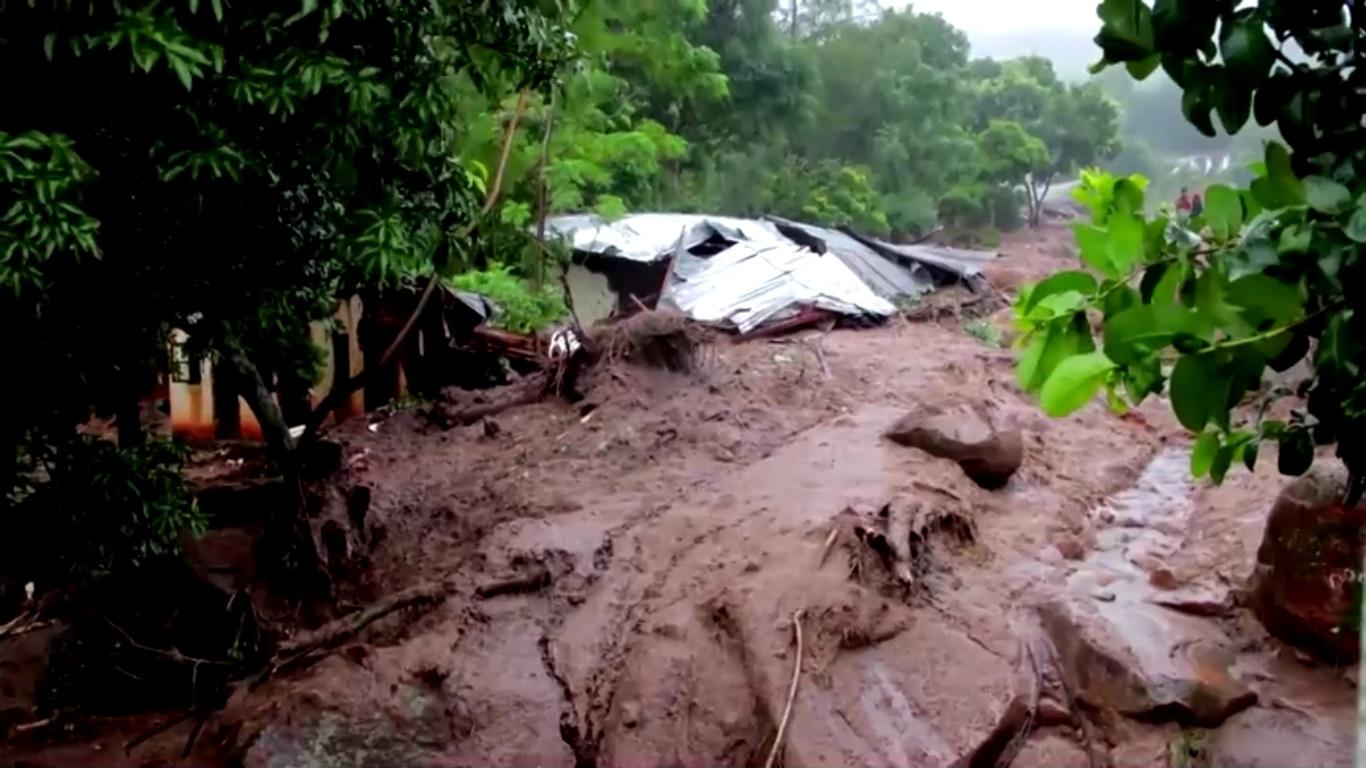Storm Freddy may be longest-lasting cyclone, kills more than 60 in Mozambique, Malawi

BLANTYRE, Malawi/MAPUTO, Mozambique — Mozambique and Malawi on Monday were counting the cost of Tropical Storm Freddy, which killed more than 60 people, injured scores and left a trail of destruction as it ripped through southern Africa for the second time in a month over the weekend.
Freddy is one of the strongest storms ever recorded in the southern hemisphere and could be the longest-lasting tropical cyclone, according to the World Meteorological Organization, which noted that Freddy was first spotted on February 6 "a few hundred kilometers off the northwest coast of Australia."
"WMO is monitoring whether Freddy will set a new record as the longest lasting tropical cyclone. It is likely that the WMO Weather and Climate Extremes evaluation committee will set up an investigation AFTER the cyclone has dissipated," the UN agency said.
The storm pummeled central Mozambique on Saturday, ripping roofs off buildings and bringing widespread flooding around the port of Quelimane, before moving inland towards Malawi with torrential rains that caused landslides.
The full extent of the damage and loss of life in Mozambique in particular is not yet clear, as the power supply and phone signals were cut off in some parts of the affected area.
In Malawi's main commercial hub of Blantyre, the central hospital had received at least 60 bodies by early afternoon, Doctors Without Borders (MSF) country director Marion Pechayre told Reuters by telephone, adding that some 200 injured were being treated in the hospital.
The injuries were from falling trees, landslides and flash floods, she said. "A lot of (houses) are mud houses with tin roofs, so the roofs fall on people's heads."
Casualties were still arriving from affected areas, said Chipiliro Khamula, spokesperson for the department of disaster management.
Police spokesperson Peter Kalaya told Reuters that rescue teams had been looking for people in Chilobwe and Ndirande, two of the worst-affected townships in the country's second-largest city Blantyre, where it was still raining on Monday and many residents were without power.
"Some missing people are feared buried in rubble," Kalaya said.
At least six people died in Mozambique's Quelimane, which was struck hard by the storm, authorities told the public broadcaster on Monday.
Scores more people were injured, Health Minister Armindo Tiago said on Radio Mozambique.
"The situation is critical in Zambezia province. We can't advance with an accurate picture of the scale of damage because there's no communications with all the regions," he said from a hospital in Quelimane.
The total number killed by storm Freddy in Mozambique, Malawi and Madagascar since it first made landfall last month is now nearing 100.
Guy Taylor, chief of advocacy, communications and partnerships for UN children's agency UNICEF in Mozambique, told Reuters from Quelimane that humanitarian agencies there did not have the capacity to deal with a disaster of this size.
"We saw a lot of destroyed buildings and clinics. People's homes had their roofs torn off by the wind. Even before the cyclone hit we saw localized flooding," he said.
The wind had died down on Monday but there was still a lot of flooding that had destroyed crops and created a risk of waterborne diseases, he said.
Mozambique has seen more than a year's worth of rainfall in the past four weeks.
Malawi has been battling the deadliest cholera outbreak in its history, and UN agencies have warned the situation could now get worse.
Scientists say climate change is making tropical storms stronger, as oceans absorb heat from greenhouse gas emissions and when warm seawater evaporates heat energy is transferred to the atmosphere. — Reuters




